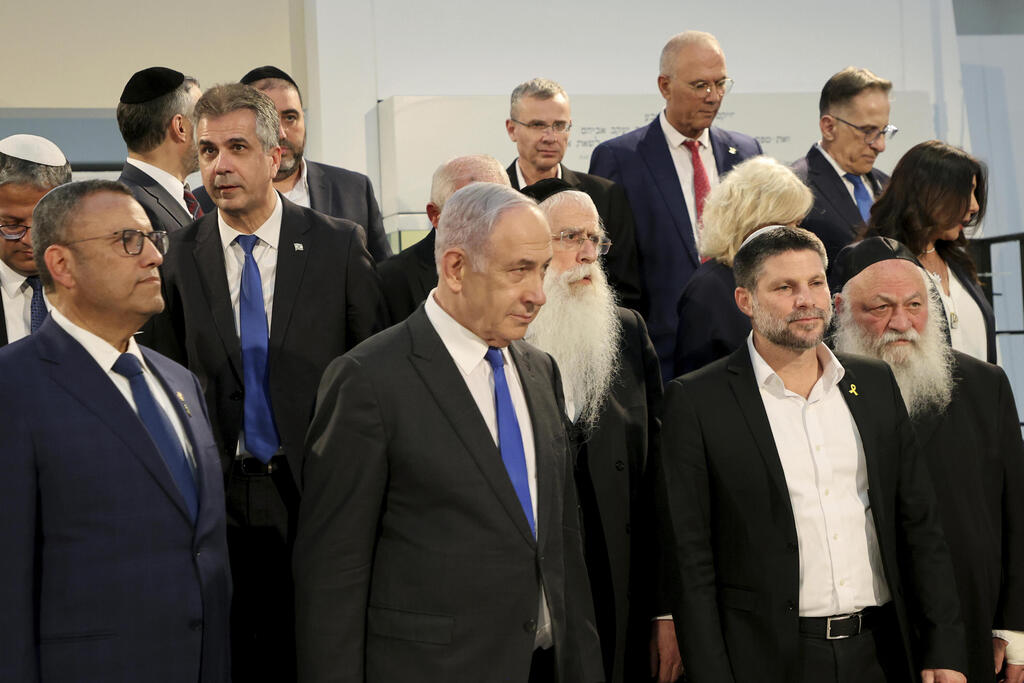The initial threats of severing commercial and economic ties with Israel due to the ongoing war seemed like mere rhetoric, causing little concern and minimal impact. However, these threats have recently transformed into concrete actions, and the consequences are starting to be felt across the Israeli economy, trickling down to the citizenry.
Historically, in the aftermath of conflicts like the Six-Day War and the Yom Kippur War, Israel enjoyed a wave of international sympathy, having been attacked by forces intent on its destruction. This sympathy, however, has a shelf life, and the situation often turns adversarial. Today, history appears to be repeating itself more severely, with numerous countries and companies worldwide announcing the severance of commercial ties, the cancellation of planned investments, and disruptions in imports and exports with Israel.
Pre-War Tensions and Emerging Boycotts
Even before the war, certain companies and funds expressed dissatisfaction with developments in Israel. Discontent stemmed from judicial reform attempts and the ongoing occupation of Judea and Samaria. For instance, Norway's wealth fund threatened to reevaluate its investments in Israel, redirecting funds away from companies supplying weapons to Israel as "punishment" for activities in the territories. Ice cream manufacturers aimed to ban sales in the West Bank and fashion companies withdrew plans to invest in Israel.
These were largely symbolic threats, inflicting minimal damage compared to the tangible boycotts emerging in recent weeks.
Turkey was the first to deliver a significant blow, with President Erdoğan announcing the cessation of all trade with Israel in phases. Israel responded with a 100% customs duty on all imports from Turkey, even though exports to Israel were already banned. Imports from Turkey continued nevertheless, rerouted through third countries like Greece or Cyprus to avoid the customs duty.
Colombia, Israel’s main coal supplier, followed suit by ceasing coal exports to Israel. The Israeli government swiftly sought alternative suppliers, receiving positive responses from countries including South Africa and Russia, despite their complex political stances. Kazakhstan and Australia are also expected to supply coal to Israel, albeit at higher prices, which may necessitate increased electricity prices amid the ongoing war.
Fashion powerhouse Fox, owned by Harel Wiesel, was hit hard when the international chain Pret A Manger canceled its franchise license due to the war in Gaza, likely under pro-Palestinian pressure. Similarly, McDonald's acquired the stake of its long-time Israeli franchisee Omri Padan, potentially due to his policy of offering discounts to IDF soldiers, which displeased global executives.
The Israeli weapons industry faced a severe setback when managers of the international arms exhibition "Eurosatory," set to open next week in France, banned Israel’s participation due to its military operations in Gaza. This exclusion is significant, as Israel typically secures deals worth hundreds of millions of dollars at this event.
Several investment companies announced they would not partake in tenders for establishing railway lines in Israel, and many other companies are reevaluating their continued investments in Israel, totaling billions. The Abu Dhabi oil company also canceled its plan to purchase 50% of New Med, in partnership with British Petroleum, and companies in Morocco and Bahrain are reconsidering planned collaborations with Israeli firms.
Pressure on U.S. Universities
Amid large protests on major U.S. university campuses against what was termed the "massacre being committed by Israel in Gaza," student unions have demanded that administrations cancel investments and collaborations with Israeli academic institutions. Some university administrations have negotiated to discuss these demands to halt the protests.
Oded Rose, CEO of the Israel-America Chamber of Commerce, told Ynet, "We believe U.S. universities will not change their investment policies in Israel or withdraw funds at this stage, partly because they are supported by many Jewish and non-Jewish donors alike, who oppose the violence of the protesters against Israel on campuses." So far, only threats to cease support have been heard, except for a few announcements from European universities, mainly in Scandinavia. The damage has been minimal.
3 View gallery


Anti-Israel protesters fly Palestinian flags and hold up photo of Iranian Supreme Leader Ayatollah Ali Khamenei during a rally at University College London, February 7, 2023
(Photo: Emily Schrader)
Additionally, Securities Authority Chairman Sefi Zinger reported that foreign investors had withdrawn $9 billion from the Israeli stock market, including $3.7 billion from government bonds. This withdrawal reflects a cold economic calculation rather than a punitive or anti-Semitic response, highlighting the risks of investing in a country at war.
A Call for Strategic Discussion
Despite mounting economic challenges, there has been no serious discussion at the governmental level or within the Finance and Economic Ministries, and even in the Knesset's Finance and Economic Committees, about the implications of these boycotts and severed economic ties. It's imperative such discussions occur promptly to mitigate the new economic impacts on Israeli companies and citizens amid the ongoing war.
First published: 20:57, 06.09.24



